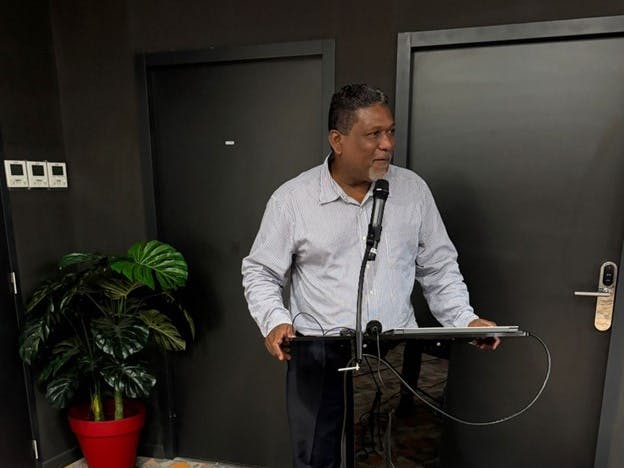Eighth Antilles-Guyana territorial meeting (RTAG)
Organized by the National Center for Territorial Public Service (CNFPT), the Antilles-Guyane Territorial Meetings were held in Jarry, Guadeloupe, on November 5 and 6. The Collectivité of Saint-Martin was represented by the 3rd Vice-President Dominique LOUISY, accompanied by several territorial executives.
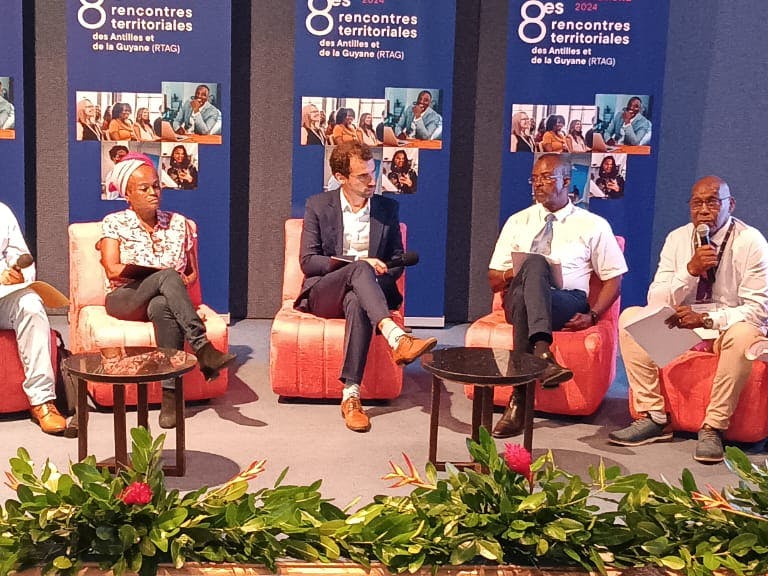 Eighth Antilles-Guyana territorial meeting (RTAG)
Eighth Antilles-Guyana territorial meeting (RTAG)This event, which brings together elected officials and local executives, is an opportunity for the communities of Guadeloupe, Martinique, Guyana, Saint-Martin and Saint-Barthélemy to discuss joint themes, in the form of round tables and workshops.
For two days, participants were able to debate on the major theme of ecological transition. Speeches by the delegate of the CNFPT Guadeloupe, deputy mayor of Basse-Terre, Mr. Bernard GUILLAUME and the President of the CNFPT, Yohann NEDELEC, introduced the work. Issues related to the management of drinking water, the preservation of biodiversity and the ecological transition were widely addressed, as were issues of urban planning and circular food.
Among the most strategic workshops, the identification of the professions and skills necessary for the implementation of the Ecological and Energy Transition strategy of the communities, was the subject of fruitful discussions between the elected officials present: the vice-president Dominique LOUISY, the president of the Guadeloupe Region Ary CHALUS, the president of the collectivité of Saint-Barthélemy Xavier LEDEE, as well as Lucien ALEXANDER, territorial councilor of the collectivité of Guyana and Lucien SALIBER, president of the Assembly of the collectivité of Martinique.
During this 1.5-hour debate, elected officials were able to discuss the profound and necessary transformations that local authorities must consider in their mode of operation and governance, in order to meet the challenges of the ecological transition, in particular the evolution of professions and skills, new cooperation models, and the managerial transformation to be carried out to succeed in this transition.
As Vice-President Dominique LOUISY points out, “These profound changes must be made in communities in the coming years, in order to be able to understand the challenges of the ecological transition and make efforts to control consumption. Professional practices must be profoundly modified to rethink the skills required, from specific expertise to how to lead a territory.”
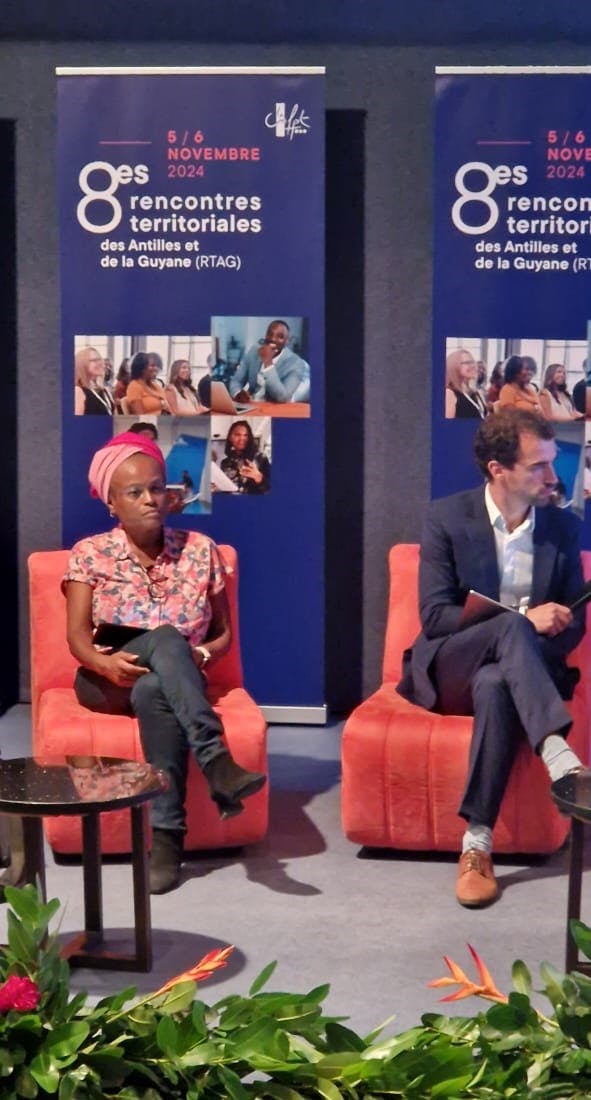 Eighth Antilles-Guyana territorial meeting (RTAG)
Eighth Antilles-Guyana territorial meeting (RTAG)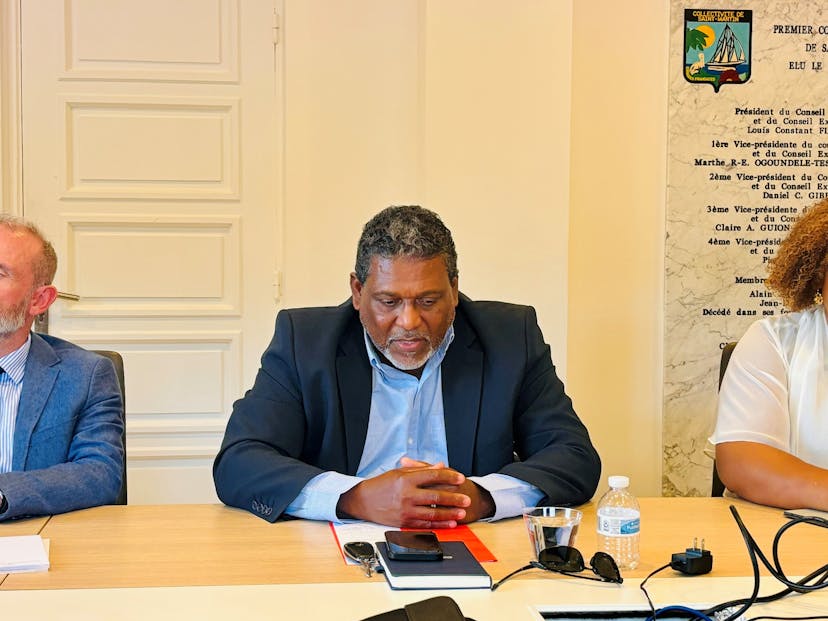
Conférence de Presse conjointe EDF-ETAT-COM : point de situation énergie à Saint-Martin
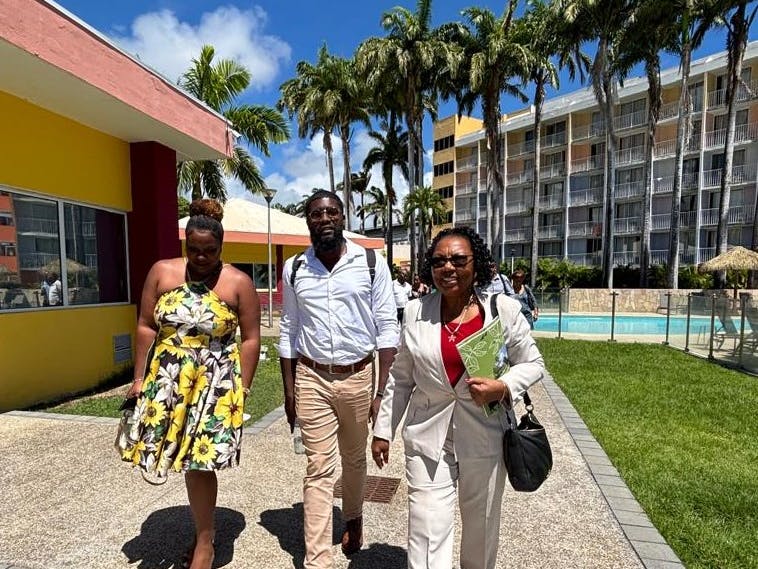
Sustainable development: Saint-Martin is committed to flood prevention and the preservation of aquatic environments
